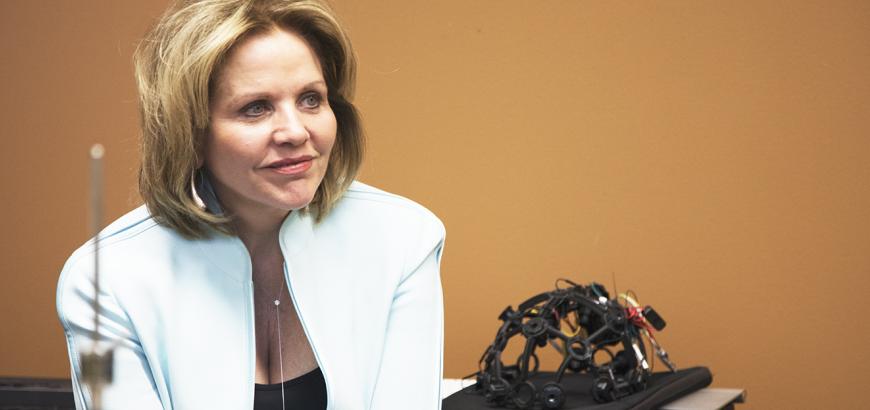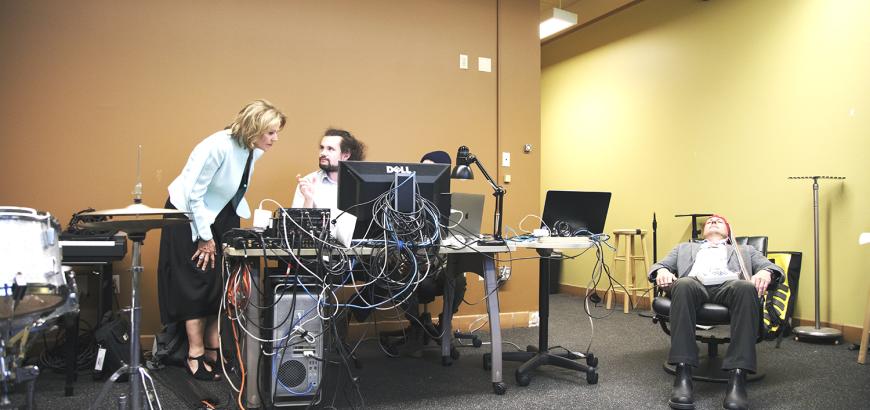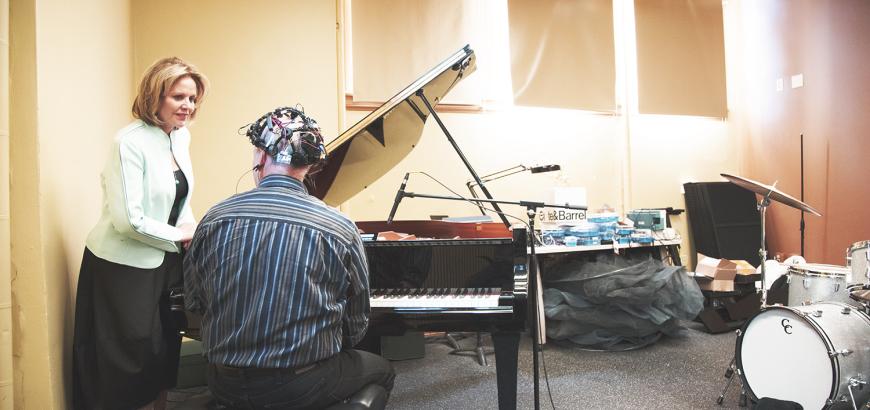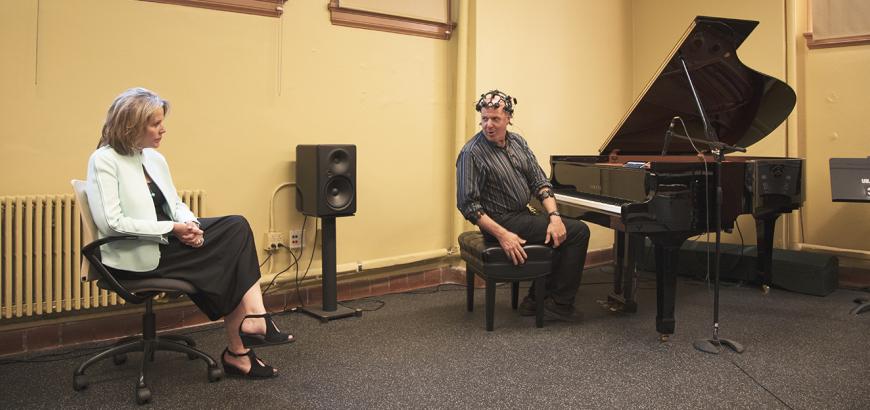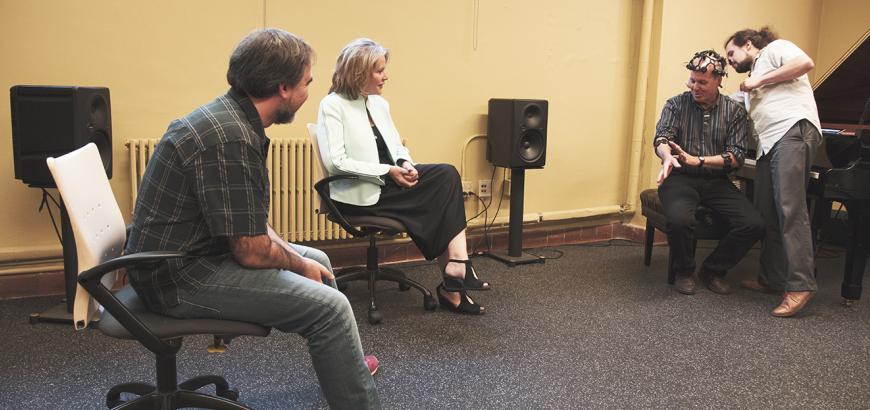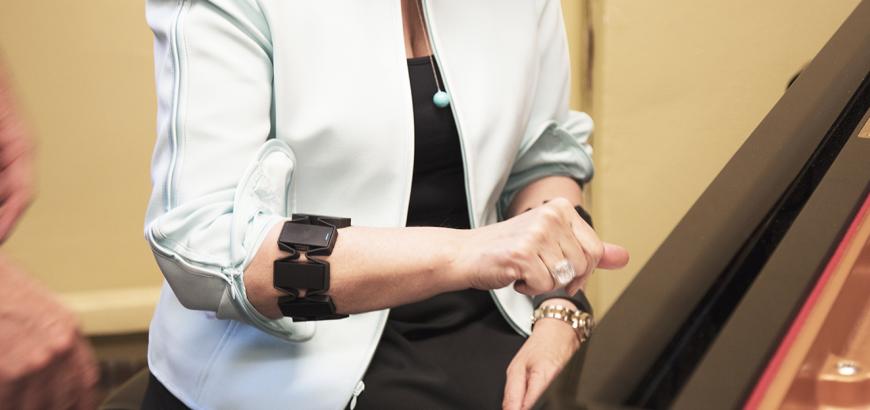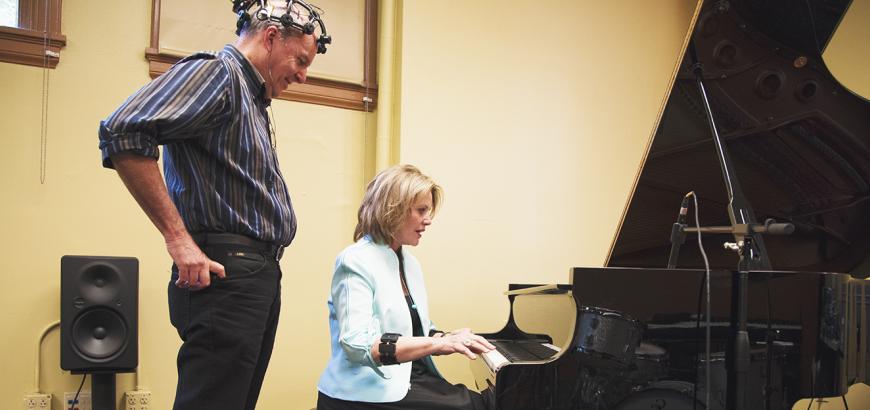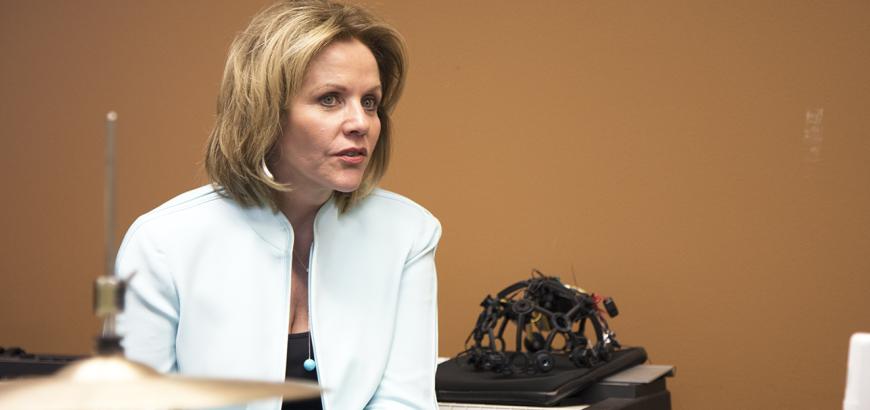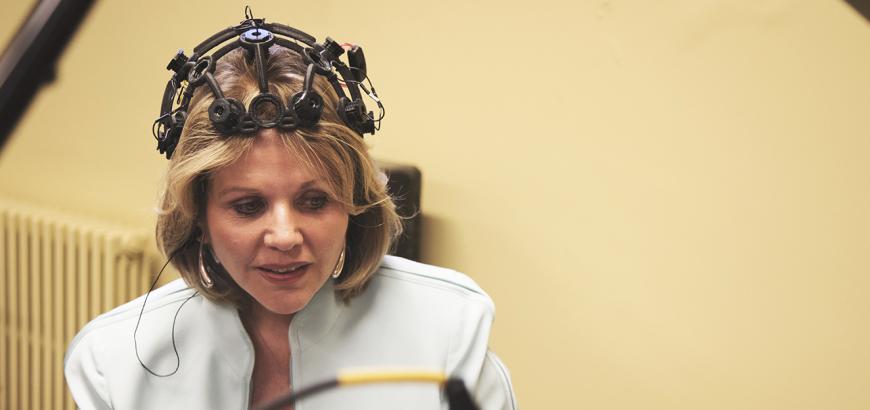The buzz about the research underway at the Center for Digital Arts and Experimental
Media (DXARTS) attracted a high-profile visitor recently when world-renowned soprano
Reneé Fleming, in town for an engagement with Seattle Symphony, paid a visit to
DXARTS’ Art+Brain Lab.
Fleming received a personal demo donning wearable sensors and learning more about
results and methods for collecting data that have been developed over the course of
the past several years at DXARTS. Professors Richard Karpen, Juan Pampin and Thomas
Deuel, and Research Associate Marcin Paczkowski, demonstrated ongoing work with tools
and technology—including mini Electroencaphalography (EEG) and Electromyography (EMG)
machines–used to collect brain and muscle signals that can control a piano and
software synthesizers.
Continuation of this research is made possible through a generous grant from the
National Endowment for the Arts and by the Yamaha Corporation, providing support
through its Disklavier, a robotic/acoustic piano that has performed a central role in
presentation and refinement of the professors' music experiments.
Read more about work under way at the Art+Brain Lab here and here.
